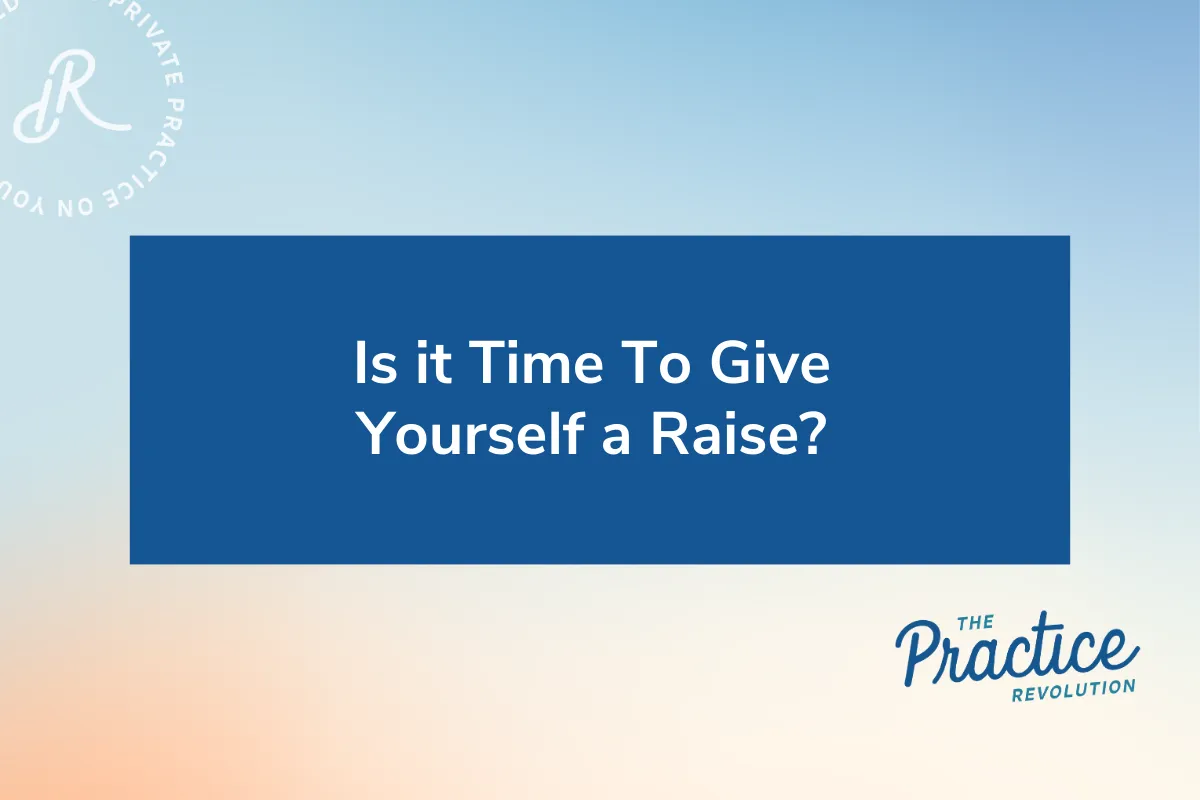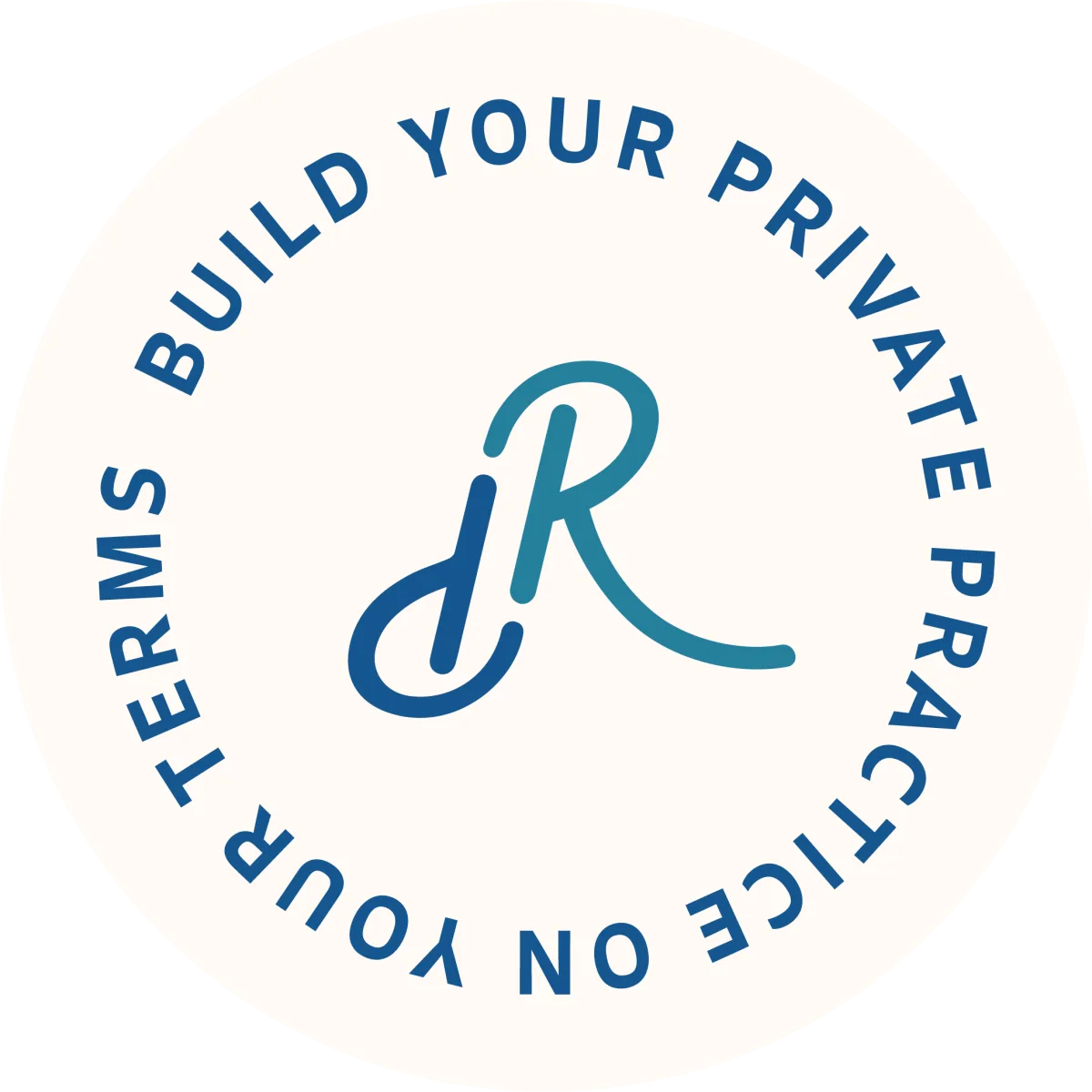Contact Us
Kind Words From
Kind People...
ARTICLES
Advice, tips & stories that will help you build your online nutrition business

Is it time to give yourself a Raise?
When should you raise your prices? How do you know it's the right time? And how do you actually do it? Are there clear signs that show you when to give yourself a pay boost?
There are five important signals to look for but before we dig into that, what you're currently charging? How much do you ask for a single session? Or do you offer package deals? Maybe there's an option for clients to pay for a whole month upfront? Everyone's setup is a bit different, and that's totally okay. Are you charging something like $50 for a session? Or maybe it's $100 or $150? Do you provide special programs that cost $1200 or even more, like $3000, $4000, or $5000 for a person?

Some folks charge a lot and if your rates are lower, don't worry. We all have to start somewhere, and the prices most people are used to are what matters now. Even if others are charging way more in the thousands, trust me, there's not much difference between what they're doing and what you're doing. It just takes a little change in how you think about it.
The 5 Signs You Need To Give Yourself a Raise
1. You Can Feel it
Ever had a client immediately agree to pay after hearing your price? It's a unique moment that's hard to describe until you experience it. Picture this: you set your rate, the client eagerly accepts, and you're left thinking, "Are they ready to work with me at that price?" It can catch you off guard. You proceed to confirm payment methods like cash, check, Venmo, or others.
But here's the twist – later on, you might feel a hint of regret. Thoughts pop up: "Could I have asked for more? Did I undervalue myself?" This questioning is common, even among our program clients.
Remember, your initial price is a starting point, not a forever commitment. It's there to boost your confidence, get you started, and land those first clients. However, after a successful sale, you might realize, "What if I charged more?" This realization often dawns when you see clients enthusiastic about investing in your services.
This brings us to a key insight: that feeling of missed opportunity. It's our first sign. Your gut is telling you that you might be undervaluing your work. When you sense this, it's time to reevaluate your pricing strategy. Pushing past discomfort to embrace growth is what sets successful entrepreneurs apart. So, if you think, "I could have charged more," know you're on the path to maximizing your worth.
2. Competitors are Charging More
The second significant sign that you should seriously consider raising your rates comes into play when you notice that your competitors are charging higher fees than you. Let's dive deeper into this pricing principle with a couple of real-world examples.
Imagine you're offering nutrition coaching services. You find out that several fellow nutrition coaches in your area are charging significantly more for similar programs. They might charge $200 for a session, while you're only charging $100. This price gap sends a message to potential clients about the perceived value of your services.
Now, consider this scenario from a client's perspective. They're searching for a nutrition coach to help them reach their health goals. They come across two options: you and a competitor. Your competitor's higher price might lead them to think, "Well, this coach must be really good if they charge more." On the other hand, your lower price might inadvertently convey a sense of lower expertise or value, even if that's not the case.
Let's shift to the gym analogy mentioned earlier. If you're deciding between two gyms, one charging $10 a month and another charging $150 a month, you might naturally assume that the pricier one offers better facilities, expert trainers, and a more personalized experience. This perception can influence your decision, even before experiencing either gym.
So, what's the takeaway? When your competitors are charging more, it's a strong signal that the market is willing to pay higher prices for the services you offer. By pricing yourself in line with or slightly above your competitors, you position yourself as a professional who provides substantial value. This doesn't mean you should just raise your prices arbitrarily; it's about acknowledging the market's perception of value and adjusting accordingly. This strategic pricing alignment can help you attract more committed clients, elevate your business, and contribute to the positive results your clients achieve.
3. The Math Doesn't Add Up
The third sign pointing towards the need to raise your prices is when the math doesn't align with your financial goals. Let's illustrate this with a real-life scenario.
Imagine a client who balances a part-time job with her private practice. With the capacity to handle only 10 clients each month, she aims to earn $5,000 to leave her job. Her programs are priced at $249 and $349, with an average payment of $299. With 10 clients paying on average $299, her maximum monthly earnings would be $2,990 – far from her goal.
Considering the best-case scenario of all clients choosing the higher-priced option, paying $349, her monthly earnings would reach only $3,490. Despite pushing herself to the limit, juggling both roles, she's still nowhere near her target.
The lesson here? It's essential to perform the calculations. Understand your client capacity based on available time. Set clear financial objectives. If the numbers don't align, you have two main options:
1. Gradually increase your rates until you feel a sense of discomfort, then go further.
2. Allocate more time from your job to your business to accommodate more clients.
Both options may appear daunting, but they're crucial steps in achieving your goals and escaping the nine-to-five grind.
4. Selling Like Hotcakes
Critical sign number four that signals the need to raise your prices is when you're selling effortlessly, like hotcakes at a lemonade stand on a scorching day. When objections are virtually absent, it might seem like a win, but it can indicate that your prices are too low. Easily acquired clients might not be as committed to the process and the results.
This relates back to the first sign, the intuitive feeling. If it's too easy, it's time to consider raising your rates gradually. A modest increase of $25 or $50 could be a starting point. Clients who are willing to invest in your services at a lower rate are likely to continue doing so at a slightly higher rate. This maintains a healthy level of commitment and ensures clients value your offerings.
Remember, a lack of objections might mean you're not challenging your clients enough, so consider increasing your prices to elevate the quality of your service and the results you provide.
5. Your Business has maintained the Same Rates for a year
Sign number five that indicates it's time to raise your rates is if you've been operating at the same prices for a year. As prices of goods and services naturally rise due to inflation, it's crucial to adjust your rates accordingly. Think about how everyday expenses have increased over the years, like gas, groceries, and housing costs. Your services are no exception.
Raising your rates isn't just about making more money; it's about reinvesting in your business to provide an enhanced experience for your clients. This might involve hiring staff, improving customer service, or adopting better technology. By increasing the value you offer, you create a win-win situation where clients pay a bit more for an even better service.
Consider it an annual review – aim for a 5% to 10% increase in your rates every year and a half. This step is about valuing your expertise and ensuring your business can continue to thrive while delivering top-notch service. So, if you've been steady on pricing for a year, it's time to make the adjustment.
If you find yourself in any of these situations, it's time to consider raising your rates. We're here to help you navigate these decisions, whether you're just starting or facing roadblocks in your progress. Let us provide insights and solutions tailored to your unique business needs. Click HERE to schedule your FREE a 15-minute business clarity today!
Want to learn more? Watch the video below!
Is it Time To Give Yourself a Raise?
Our Mission
We’re on a mission to help registered dietitians and certified nutrition coaches build + scale their private practice to increase their income and impact. Get ready to build the career you’ve always wanted, while inviting more freedom and flexibility into your life.

©2024 Carlin Consulting LLC | All Rights Reserved | Brand Credits






